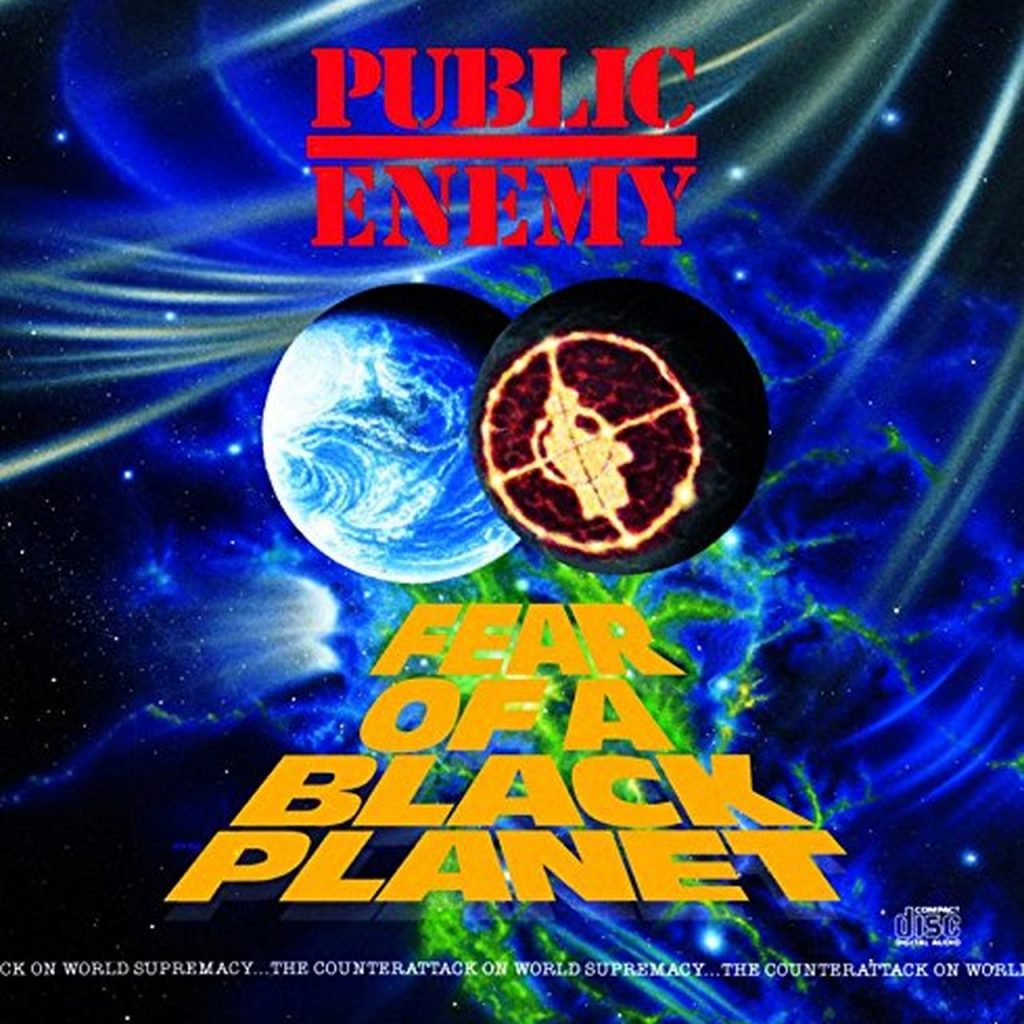Released on April 10, 1990, Fear of a Black Planet is the critically acclaimed third studio album by the iconic hip-hop group Public Enemy. Heavily influenced by Dr. Frances Cress Welsing’s 1970 essay, The Cress Theory of Color-Confrontation and Racism (White Supremacy) the album serves not just as a collection of songs but as a unifying voice for the African American community, exploring themes of race, social justice, and empowerment. Public Enemy, known for their politically charged lyrics and innovative sound, crafted this project to challenge societal norms and confront the systemic racism that pervades American life.
The album’s title itself is a bold statement. It references the anxiety of a predominantly white society in the face of increasing African American visibility and influence. Public Enemy used their platform to illuminate the fears that marginalized communities experience while simultaneously addressing the fears of those in power. This dichotomy is central to the album’s message, as it tackles the complexities of race relations and identity in America. The album’s cover art also plays a significant role in its impact. Designed by NASA illustrator B.E. Johnson, it embodies the central themes of fear and empowerment. It challenges the viewer to confront their biases and assumptions while representing the album’s overarching message of racial identity and resistance.
One of the standout tracks from the album is “Fight the Power,” a song that has transcended its time to become an all-time anthem for resistance. Written for Spike Lee’s film Do the Right Thing, the powerful anthem encapsulates the frustration and anger felt by generations of African Americans. The lyrics challenge systemic oppression and demand recognition for Black voices. Chuck D’s commanding delivery, combined with the bombastic production from the group’s main producer, The Bomb Squad, creates an empowering rallying cry. The song’s infectious beat and compelling message resonate deeply, making it a significant cultural artifact of the late 20th century.
Another notable track is “911 Is a Joke,” which takes a satirical approach to the inadequate response of emergency services in African American communities. Featuring Flavor Flav, the song uses humor to highlight a serious issue — the disparity in treatment afforded to Black individuals during emergencies. Through sharp lyrics and an upbeat tempo, the track calls attention to the failure of the system, urging listeners to recognize and confront these injustices.
The album features intricate production techniques that were groundbreaking for its time. The Bomb Squad’s use of sampling and layered soundscapes creates a rich auditory experience. Tracks like “Welcome to the Terrordome” incorporate a dizzying array of samples, combining various genres and styles to create a wall of sound that is both chaotic and cohesive. This sonic experimentation not only showcases the group’s musical prowess but also serves to reinforce the themes of disarray and urgency in their lyrics.
Lyrically, the album tackles a variety of issues. In “Burn Hollywood Burn,” the group critiques the film industry’s portrayal of Black individuals, addressing the stereotypes and narratives that have historically marginalized their stories. The song expresses a desire for authentic representation and demands accountability from Hollywood for its role in shaping public perception.
The theme of Afrocentrism is also prevalent throughout the album. In “Brothers Gonna Work It Out,” Public Enemy advocates for unity and collaboration among African Americans. The track emphasizes the importance of solidarity in the face of adversity and serves as a call to action for the community to rise together against oppression. The lyrics convey hope and resilience, reminding listeners of their shared history and the strength found in collective action.
In the years since its release, songs from the album have been embraced by various movements advocating for social justice and racial equality. The messages contained within the album continue to resonate, as systemic racism and inequality remain pertinent issues in contemporary society. Public Enemy’s ability to articulate the struggles of their time demonstrates the power of music as a vehicle for social change. Fear of a Black Planet is an essential listen for anyone seeking to understand the complexities of race and identity in contemporary society.

